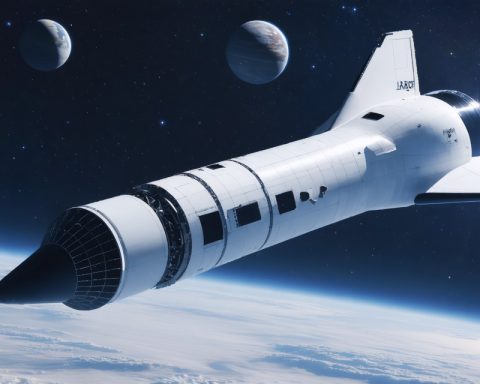Fostering a New Era: ISRO’s Pioneering Space Docking Experiment
Amidst the vast, silent expanse of space, India is on the verge of accomplishing a feat that could redefine its role in global space technology. The Indian Space Research Organisation (ISRO) is orchestrating a daring endeavor known as the Space Docking Experiment (SpaDeX), a mission that could pave the way for transformative changes in how nations approach space technology.
Visionary Objectives and Technological Marvels
Launched on December 30, 2024, from the PSLV-C60 rocket, the SpaDeX mission involves the intricate dance of two satellites, SDX01 and SDX02, which are meticulously maneuvering in close proximity. Positioned just 230 meters apart, these satellites are undergoing extensive sensor evaluations aimed at ensuring perfect execution of the challenging docking procedure.
Bridging Challenges and Future Possibilities
ISRO’s aggressive push to establish a space docking capability represents more than just a technological accomplishment; it positions India to play a critical role in future space enterprises. By overcoming initial hurdles, such as unanticipated satellite drift, ISRO is setting the stage for leaps in lunar missions and the potential construction of India’s own space station, Bharatiya Antariksh Station (BAS).
Global Implications and Strategic Advantages
A successful SpaDeX mission would give India an edge in collaborative international projects, offering an opportunity for shared technological advancements and strategic partnerships. As the world looks forward to humanity’s continued exploration of space, India’s ability to dock satellites may become an invaluable piece of the global space exploration puzzle.
ISRO’s journey with SpaDeX is not just a testament to its growing capabilities but a preview of what could be a new dawn in space exploration, with India at the helm of technological innovation.
The Hidden Dynamics of Space Docking: How ISRO’s Experiment Could Transform Global Technologies
In the realm of advancing space technology, the Indian Space Research Organisation (ISRO) propels itself into a pivotal position with the Space Docking Experiment (SpaDeX). While the primary focus has been on the intricate docking capabilities of their two satellites, the implications extend beyond immediate technical achievements.
Unveiling New Frontiers in Autonomous Technology
An intriguing component of SpaDeX is its potential to revolutionize autonomous systems both in space and on Earth. The precision required for satellite docking necessitates cutting-edge sensor technology and autonomous navigation systems. This could spur advancements in AI-driven applications, including autonomous vehicles on Earth, enhancing safety and efficiency.
Economic and Strategic Controversies
With technological strides come controversies. One contentious topic is the potential militarization of space. As nations enhance their satellite control, concerns about space as a new frontier for defense strategies are inevitable. Can technological advancement in space remain purely scientific, or will it fuel a new space race dominated by defense agendas? Balancing peaceful exploration with strategic capabilities remains a crucial discussion point.
Advantages and Disadvantages of Global Collaboration
India’s success with SpaDeX could foster unprecedented international collaborations. The pooling of resources and knowledge can lead to leaps in technology. However, it also poses the risk of geopolitical tensions, where nations could leverage collaborations for power rather than peace.
In adapting to the rapid evolution of space technology, questions about ethics, collaboration, and the potential risks must be addressed. As ISRO pioneers these advances, the world watches closely, poised for what could be the dawn of a digital and exploratory revolution in space technology.















